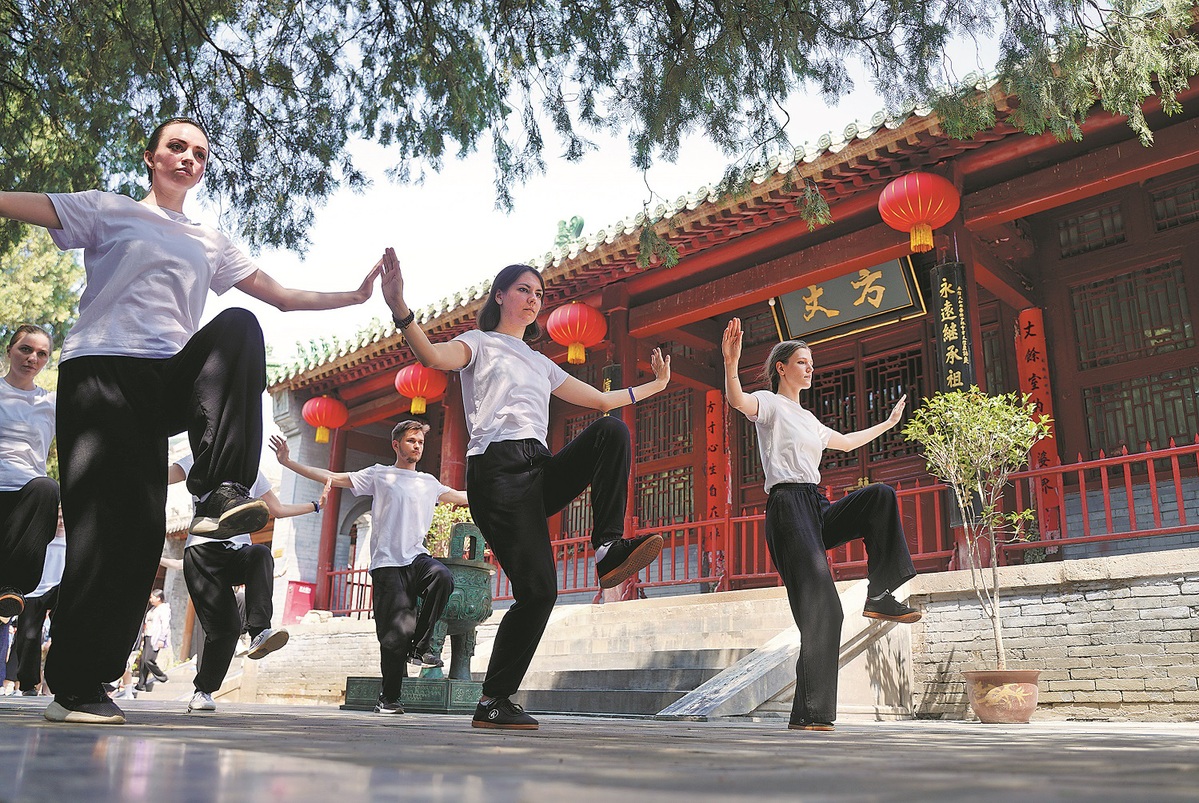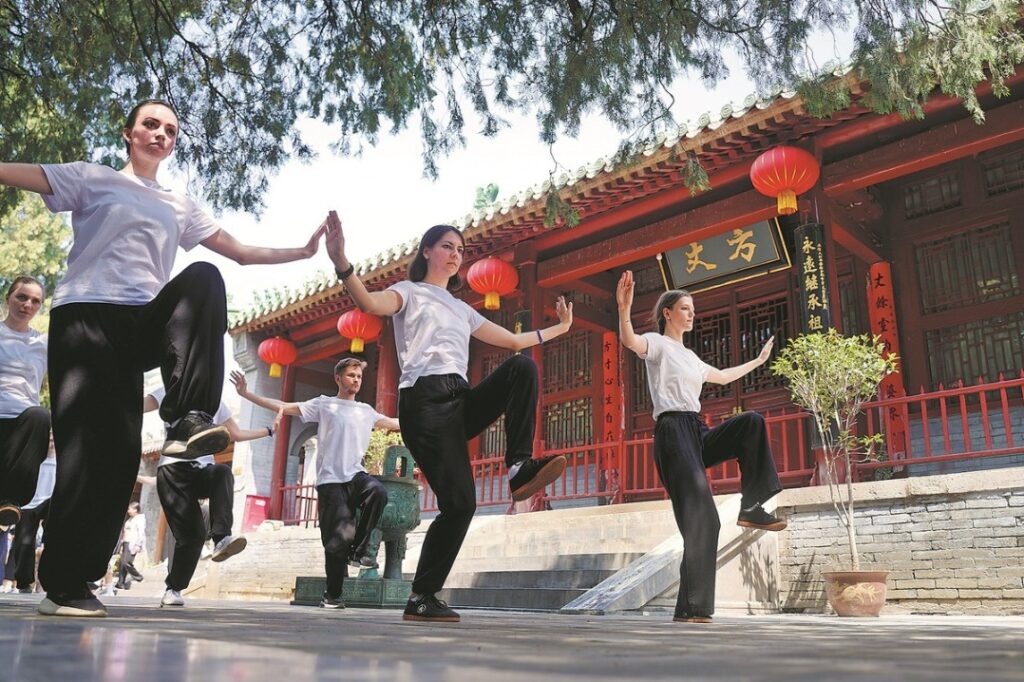
Foreign disciples practice kung fu outside the abbot's room at the Shaolin Temple in Dengfeng city, Henan province, on Monday. MA JIAN/CHINA DAILY
The Shaolin Temple, a cradle of Chinese culture known for its martial arts and Buddhist traditions, is hosting 101 Russian students for an intensive two-week program.
Now in its ninth year, the program, organized by the Moscow Shaolin Cultural Center, sees participants aged between 16 and 72 learn Shaolin kung fu at the historic temple in Henan province, delve deeply into Zen Buddhist practices and experience everyday life.
Among the participants was 16-year-old Sofia Stepanova, who was captivated by the temple's beauty and was eager to improve her martial arts skills and Chinese language abilities.
“Shaolin Temple is beautiful and I enjoy coming here and learning new things about Chinese history,” she said. “My goal on this trip is to learn martial arts, explore Chinese culture and practice the Mandarin language I've been studying for so many years since I was a child.”
“Everything here is amazing: the food, the traditions and customs, the people, the towns and cities.”
Stepanova expressed her gratitude for the opportunity to participate in the program.
“Every day I learn a new word or cultural thing,” she says. “I love learning new languages. I speak English and French, and I'm also learning Latin and Ancient Greek.”
“I want to go to university and study medicine, including traditional Chinese medicine. Acupuncture is a wonderful treatment, and I would like to use it in my future practice.”
Shi Yanbin, 56, director of the Moscow Shaolin Cultural Center and organiser of the programme, said the Russian students were enthusiasts of Chinese culture and Shorinji Kempo.
“The students are divided into four classes and I lead one class with about 30 students,” he said. “We teach them Shaolin kung fu, calligraphy and Zen training. They usually wake up at 4am and go to bed around 11pm. Shaolin is very quiet at night, which helps them find inner peace.”
Shi, who has lived in Moscow for 20 years, said the center where he works has more than 2,000 Russian disciples and followers, 40 percent of whom are children and young people.
“China's good development in recent years has made me more culturally confident,” he said.
Located in the Songshan Mountains in Dengfeng city, Henan province, the Shaolin Temple is currently managed by abbot Shi Yongxin. Built during the Northern Wei dynasty (386-534), it is known as the birthplace of Chinese kung fu and Zen Buddhism and was inscribed as a UNESCO World Heritage Site in 2010.
Chi Hsin People from Zhengzhou contributed to this article.
The author can be contacted at chengsi@chinadaily.com.cn

